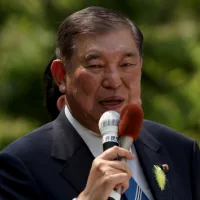
omersukrugoksu/iStockBy HATEM MAHER and CONOR FINNEGAN, ABC News
(WASHINGTON) — President Joe Biden’s administration expressed concern about the Egyptian government’s human rights record Tuesday, especially after family members of a U.S. citizen and human rights activist were detained. But hours later, the State Department announced the sale of nearly $200 million of weapons to Cairo — the first substantial arms transfer to the Middle East in Biden’s young term.
The case has become a test of how Biden will approach the government of President Abdel Fattah el Sisi, the former military commander who seized power in 2014 and ousted Egypt’s elected Islamist government.
Egypt has long been a key U.S. partner in the region and the recipient of substantial U.S. military assistance. But Sisi’s increasingly authoritarian rule has provoked vocal criticism from human rights advocates, some U.S. lawmakers and Egyptians, who at times have taken to the streets to protest despite Sisi’s brutal crackdowns on dissent.
Three cousins of American-Egyptian activist Mohamed Soltan, a former political prisoner who was detained by Sisi’s government, were arrested Sunday in what the U.S.-based activist’s group said was a “reprisal for his human rights advocacy.” Two have since been released, Soltan told ABC News on Thursday.
In total, six cousins were originally taken away by plainclothes officers after the homes of six of Soltan’s relatives were raided, according to his group, the Freedom Initiative.
“The arrests are part of an intensified campaign of transnational repression by the Egyptian military regime designed to silence critics outside Egypt,” the group said Tuesday.
Other relatives of Soltan were arrested last year in apparent retaliation to Soltan’s lawsuit against former Egyptian Prime Minister Hazem El-Beblawi in a U.S. court, in which the Soltan accused the former prime minister of having him tortured while he was a political prisoner in Egypt.
They were released in November, shortly after Biden’s election win.
Egypt’s State Information Service did not immediately respond to questions seeking comment, but the country has regularly denied holding any political prisoners.
The families of other human rights activists have also been reportedly targeted. In 2019, Egyptian police arrested the brother of Wael Ghonim, one of the most prominent leaders of the 2011 revolution that toppled longtime U.S.-backed strongman Hosni Mubarak.
Soltan was arrested during Sisi’s crackdown after the former defense minister toppled Islamist President Mohamed Morsi in 2013. Soltan spent nearly two years in prison — during which time he went on hunger strike and claims he was tortured — before he was forced to give up his Egyptian citizenship in exchange for his release in 2015.
The Biden administration said Sunday that it was looking into the latest arrests and raised the cases with Egypt.
“We won’t tolerate assaults or threats by foreign governments against American citizens or their family members. Such behavior is against our values, it’s against our interests, and it very much undermines our bilateral partnerships around the world,” State Department spokesperson Ned Price said Wednesday.
Just one day prior, however, the State Department announced it had approved the $197 million sale of naval surface-to-air missiles to Egypt’s military, saying the sale “will support the foreign policy and national security of the United States by helping to improve the security of a Major Non-NATO Ally country that continues to be an important strategic partner in the Middle East.”
Asked what message the sale sends Cairo, Price said it’s “a routine replenishment of defensive weapons that in no way prevents us from continuing to uphold our focus on democracy and human rights.”
“This is an unfortunate misstep by the Biden administration. Spokesman Price’s comments about this being a ‘routine replenishment’ is called into question by the sale notification, which explicitly states that it will ‘significantly enhance’ Egypt’s capabilities,” Todd Ruffner, the advocacy director of Freedom Initiative group, which Soltan heads, told ABC News.
“While the timing is terrible, the substance of the announcement has also given the rights community serious pause about whether this administration is serious about making human rights a priority. At a time when the Egyptian government is escalating reprisals against rights advocates and their families, the United States must demand better from its apparent allies,” Ruffner added.
Egypt has been one of the highest recipients of U.S. military aid for decades, receiving over $84 billion in foreign aid since 1946, according to the congressional research service. In his final budget, former President Donald Trump requested $1.4 billion for Egypt, the vast majority of which was military aid.
Trump was accused of pulling U.S. punches amid Egyptian demonstrations against Sisi, but Trump remained largely silent on the issue, and once reportedly praised Sisi as his “favorite dictator.” Amid their warm personal relationship, Sisi’s government grew more oppressive at home, while supporting Trump’s anti-Iran and counterterror campaigns.
Former President Barack Obama also at times looked the other way in favor of stability after the Arab Spring in 2011, Mubarak’s ouster, and the tumultuous years that ensued. His administration declined to label Sisi’s power-grab a coup, although it froze military and economic aid to Sisi’s government for two years.
“This is about protecting my rights and freedoms, so I do everything in my power. I will work around the clock and turn every stone to have those rights protected,” Soltan told ABC News.
Copyright © 2021, ABC Audio. All rights reserved.















